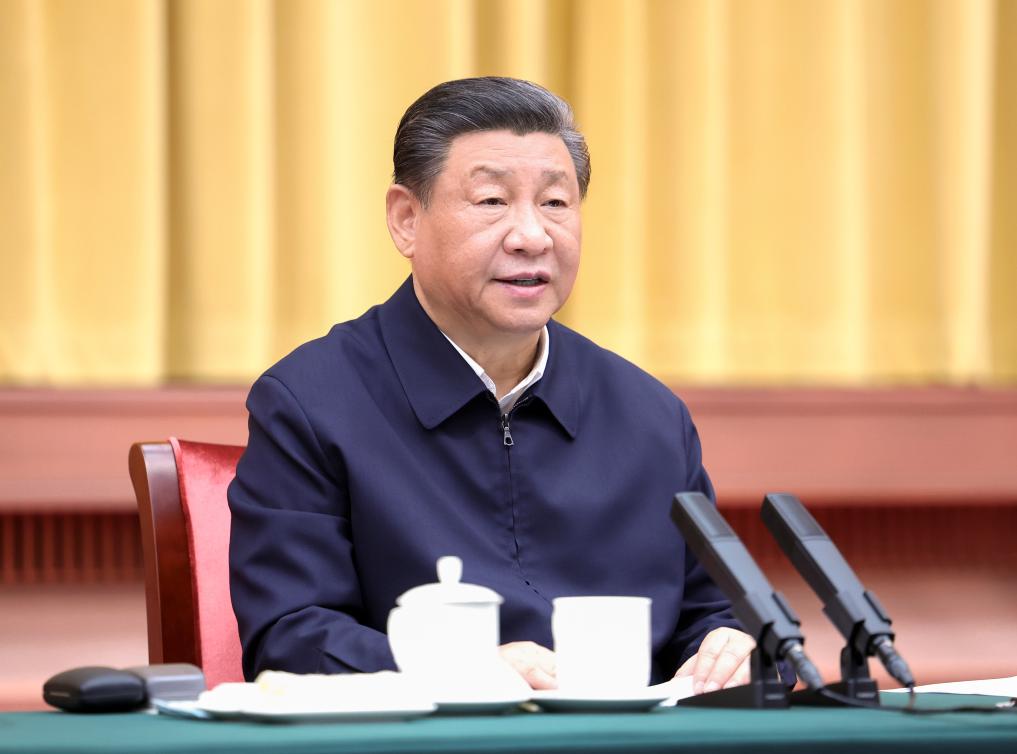BEIJING: President Xi Jinping has reiterated the nation’s strong emphasis on the ecological conservation and high-quality development of the Qinghai-Tibet Plateau, while calling for Qinghai province to better promote ethnic unity and common prosperity.
In remarks made during a two-day fact-finding trip to the province, starting on Tuesday, Xi, who is also general secretary of the Communist Party of China Central Committee and chairman of the Central Military Commission, set out wide-ranging requirements on deepening reform, expanding opening-up and pursuing green development.
Xi’s visit to Qinghai, his first tour of the province in three years, took him to a middle school and a Tibetan Buddhist monastery in Xining, the provincial capital, on Tuesday. The president had previously visited the province in 2016 and 2021, underscoring protection of the province’s ecology and environment as a major issue for the nation, along with the region’s increasingly prominent role in environmental, national, resource and energy security.
He listened to work reports from provincial authorities on Wednesday, during which he highlighted the nation’s strategic priorities for the resource-rich and ethnically diverse area.
The plateau is home to the Sanjiangyuan area, known as China’s “water tower”. It is the source of Asia’s three longest rivers — the Yangtze, Yellow and Lancang, and the location of the Three-River-Source National Park, the nation’s first national park.
Emphasizing the rich diversity and fragility of the plateau’s ecosystems, the president urged stronger steps for ecological and environmental protection to maximize its ecological functions.
He stressed the need to rigorously implement the law on ecological protection of the Qinghai-Tibet Plateau to enable the “roof of the world” to lead in national efforts to build an ecological civilization. It is important to adopt a holistic and systematic approach to conserving and improving mountain, water, forest, farmland, grassland and desert ecosystems and accelerate the implementation of major projects for the protection and restoration of critical ecosystems, he said.
The top priority, Xi said, is to ensure the sound preservation of the Sanjiangyuan area, adding that the region’s biodiversity must be protected and its capacity for water conservation must be enhanced.
He also called for steps to strengthen the construction of a natural conservation system centered on national parks, creating exemplary nature reserves with national and global significance.
The region must advance energy-saving and carbon-reduction initiatives in key sectors, develop eco-friendly industries, and accelerate the establishment of a new energy system, he added.
According to official statistics, Qinghai’s installed capacity for clean energy, including hydropower and solar energy, reached 51.08 million kilowatts by the end of 2023, accounting for 93 percent of its overall energy structure, ranking first nationwide in this respect.
Xi told the province’s top officials that Qinghai bears a significant responsibility for maintaining China’s ecological security, and the development of its industries must focus on cultivating a modern industrial system reflecting its local characteristics and strengths. –The Daily Mail-China Daily news exchange item






